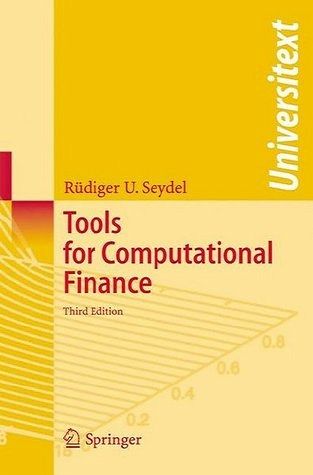Nicht lieferbar

Tools for Computational Finance
Versandkostenfrei!
Nicht lieferbar
This book is very easy to read and one can gain a quick snapshot of computational issues arising in financial mathematics. Researchers or students of the mathematical sciences with an interest in finance will find this book a very helpful and gentle guide to the world of financial engineering. SIAM review (46, 2004).The third edition is thoroughly revised and significantly extended. The largest addition is a new section on analytic methods with main focus on interpolation approach and quadratic approximation. New sections and subsections are among others devoted to risk-neutrality, early-exerc...
This book is very easy to read and one can gain a quick snapshot of computational issues arising in financial mathematics. Researchers or students of the mathematical sciences with an interest in finance will find this book a very helpful and gentle guide to the world of financial engineering. SIAM review (46, 2004).
The third edition is thoroughly revised and significantly extended. The largest addition is a new section on analytic methods with main focus on interpolation approach and quadratic approximation. New sections and subsections are among others devoted to risk-neutrality, early-exercise curves, multidimensional Black-Scholes models, the integral representation of options and the derivation of the Black-Scholes equation.
New figures, more exercises, more background material make thisguide to the world of financial engineering a real must-to-have for everyone working in FE.
Table of contents:
Modelling Tools for Financial Options.- Generating Random Numbers with Specified Distributions.- Simulation with Stochastic Differential Equations.- Standard Methods for Standard Options.- Finite-Element Methods.- Pricing of Exotic Options.- Appendices.
The third edition is thoroughly revised and significantly extended. The largest addition is a new section on analytic methods with main focus on interpolation approach and quadratic approximation. New sections and subsections are among others devoted to risk-neutrality, early-exercise curves, multidimensional Black-Scholes models, the integral representation of options and the derivation of the Black-Scholes equation.
New figures, more exercises, more background material make thisguide to the world of financial engineering a real must-to-have for everyone working in FE.
Table of contents:
Modelling Tools for Financial Options.- Generating Random Numbers with Specified Distributions.- Simulation with Stochastic Differential Equations.- Standard Methods for Standard Options.- Finite-Element Methods.- Pricing of Exotic Options.- Appendices.



